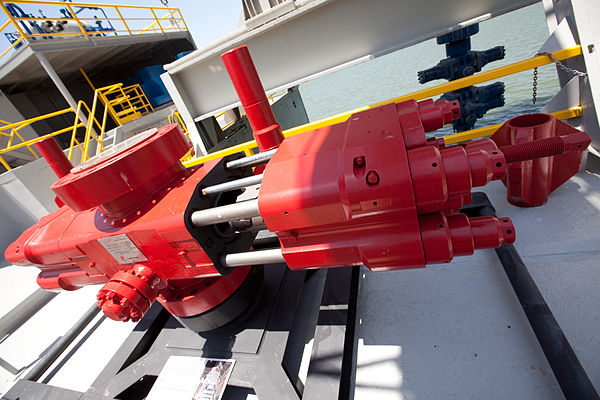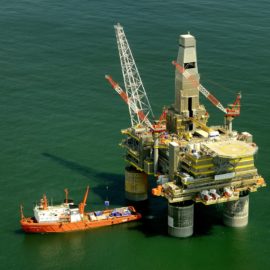
The Trump administration aided by a former State administrator rolled back the rules for blow out preventers. The Biden administration is moving to change that.
The Biden administration is proposing to strengthen a set of rules that governs safety requirements for blowout preventers and failures at offshore oil and gas rigs in federal waters. Those rules were rolled back by the Trump administration in 2019, when Scott Angelle — a former Louisiana Department of Natural Resources secretary, Public Service Commission member and lieutenant governor — led the Bureau of Safety and Environmental Enforcement, the agency that oversees the regulations. Angelle was director of the regulation agency from 2017 to 2021, stepping down when President Joe Biden took office. The set of standards — best known as the “well control rule” — was implemented by the Obama administration in 2016 in response to the Deepwater Horizon oil spill in 2010, which killed 11 people and released more than 3 million barrels of crude oil.
nola.com
The rollback in 2019 was based on the overburdened oil industry regulations. Which is their standard cry.
In 2019, the Trump administration eased up on the well control rule, saying the original set of regulations was too burdensome for offshore operators. BSEE leaders at the time, including Angelle, said 80% of the rules were left intact, though environmental advocates said the changes weakened inspection standards for safety equipment and blowout preventers, among other issues. Interior Secretary Deb Haaland is proposing reviving some of the regulations the Trump administration killed, particularly around blowout preventers, or valves that shut off wells to prevent the uncontrolled release of oil or gas into the environment. The proposed Interior rules include requiring blowout preventers to match a well’s kick tolerance, or the maximum amount of oil and gas that can be circulated out of the well without damaging the surrounding geological formation. Should the Biden rules pass, operators will also be forced to submit failure data to BSEE instead of a third party and must start failure analyses within 90 days instead of 120, among other changes.
This rule fits into the overview of the Executive Order for all agencies to consider Climate Change.
The proposed rules are in line with Biden’s January 2021 executive order for federal agencies to modify their policies to address climate change. They are designed to enhance accountability and reduce risks for offshore workers, BSEE Director Kevin Sligh said. “Safety regulations should not be political,” Sligh said Monday in a conference call with reporters. “The improvements we are proposing are based on the best available information and practices.” Haaland said any rule modifications “should always be a developing process.” “If there are better and more innovative ways to keep offshore energy operations safe, whether it’s oil and gas exploration or clean energy infrastructure, then it’s our job to incorporate them as best we can,” Haaland told reporters.
The Department of the Interior is looking for comments.
The Department of the Interior published the proposed rules Monday. Members of the public can submit comments about the rules until Nov. 14, or for the next 60 days. The blowout preventer changes also come at a time when Interior is still awaiting final word on its proposed five-year plan for oil and gas lease sales in the Gulf of Mexico and Alaska. That plan — which has been derided by both fossil fuel advocates and environmentalists for the number of lease sales it is proposing — is still going through a public comment period.
If this can stop or prevent an oil spill go for it.

